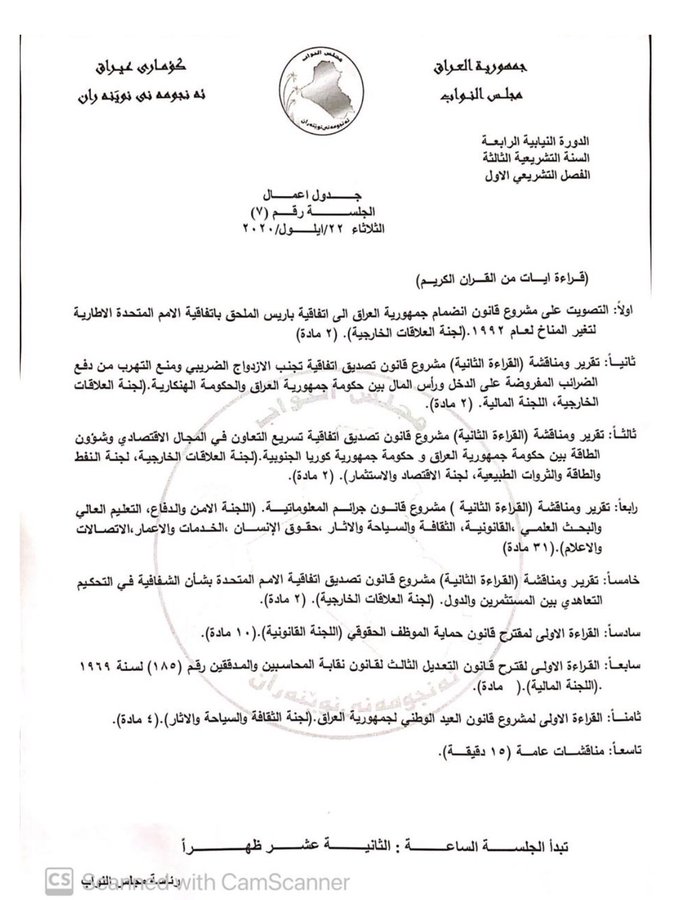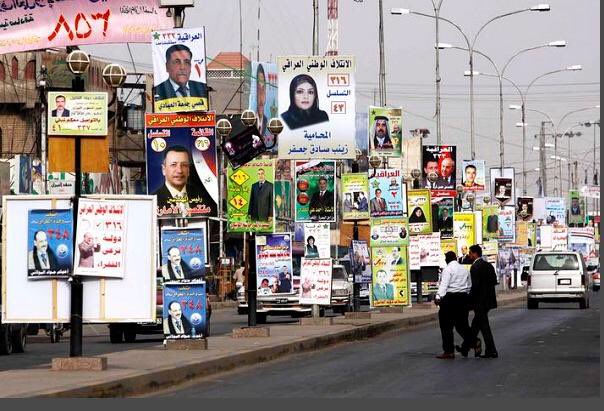Jonathan Turley writes about THE NEW YORK TIMES:
Last night, I was finalizing my column for USA Today when one of my editors flagged my reference to the roughly 30 election-year nominations to the Supreme Court as a possible error. The New York Times ran a story declaring that there “there have been 16 Supreme Court vacancies that occurred before Election Day.” I have previously discussed glaring misstatements of cases in major media, but this was unnerving because the New York Times was suggesting that the precedent for the current nomination was roughly half as previously thought. I decided to do another rough count and, if anything, it would seem that the 29 nomination figure is arguably too low and that there appears almost twice the number cited by the New York Times. The difference appears in part counting a calendar year rather than a year from election, but that approach causes problems in comparison given the earlier early election calendars.
There has been considerable push back on the “precedent” for an election-year nomination. NBC Meet the Press Host Chuck Todd exclaimed “What precedent?!” when John Barrasso (R-WY) even used the word precedent in his interview. In reality, such nominations have occurred regularly in history. Indeed, the late Justice Ruth Bader Ginsburg herself said in 2016 that the Senate had to do its “job” and vote on such nominations because “there’s nothing in the Constitution that says the president stops being president in his last year.” (While Todd correctly considered it newsworthy to note that Ginsburg wanted to leave her seat for the next president to fill, he did not consider it relevant to also note that Ginsburg previously insisted that the Senate was supposed to fill such seats in an election year). Justice Sonia Sotomayor also stated that it was wrong to leave the Court with only eight justices.
That debate will continue to rage, but we should be able to reach a consensus on the historical record, even in this time of rage. Here is my effort (taken at my own peril).
I may be missing something obvious but I count 30 nominations in the year before a presidential election. The current vacancy could produce 31. There are a couple that could be excluded by a day or so (Johnson, Rutledge, Jay, and Crittenden). There is a recess appointment (Brennan). There were also a couple on the last day of the election period (King and Walworth). Moreover, a couple nominees were nominated and then renominated. Some are repeaters. For example, President John Tyler nominated Reuben Walworth three times in 1844, but Tyler was unpopular with the Democrats and the Whigs in Congress (leading to a series of stalled efforts on nominations and legislation). Spencer and King were also repeaters but represented separate nominations. However, even with such eliminations, it comes to roughly 30 not 16 from what I can see.
NYT does not care about facts. There's Iraq, for example. But I'm thinking of a day in NYC, where C.I. and I were eating lunch and a TIMES editor drops by our table to say hello to C.I. and she rips him apart for that morning's story on Janet Jackson that got wrong every fact you could -- album sales, chart hits. It was during the attempts to attack Janet. C.I. and Janet are friends and she called it that, an "attack." She said the mistakes were not accidents, they were a deliberate attempt to destroy Janet. NYT suit denied it and tried to minimize it -- there's no minimizing that you ran a story with false 'facts' -- but now that we know that Leslie Moonves used his position at CBS in an attempt to destroy Janet -- including banning her songs from CBS-owned radio stations -- I think C.I. was probably right. NYT and CBS have a long working history together.
So, sorry, NYT never cares about facts.
"Iraq snapshot" (THE COMMON ILLS):
Tuesday, September 22, 2020. Another passing, professor Stephen F. Cohen, elections remain a mess in the US and in Iraq, and more.
Starting the US where Stephen F. Cohen passed away September 18th. The professor was married to THE NATION's Katrina vanden Heuvel. Katrina writes:
Through all our years together, Steve was my backbone, fortifying me for the battles Nation editors must wage (often with their own writers, sometimes including Steve!), and giving me the personal and political courage to do the right thing. But never more so than when we entered what might be called the “Russiagate era.”
While Steve liked to say it’s healthy to rethink, to have more questions than answers, there was a wise consistency to his political analysis. For example, as is clear from his many articles in The Nation in these last decades, he unwaveringly opposed American Cold War thinking both during the Cold War and since the end of the Soviet Union. He was consistent in his refusal to sermonize, lecture, or moralize about what Russia should do. He preferred to listen rather than preach, to analyze rather than demonize.
This stance was no recipe for popularity, which Steve professed to care little about. He was courageous and fearless in continuing to question the increasingly rigid orthodoxies about the Soviet Union and Russia. But in the last months, such criticism did take its toll on him. Along with others who sought to avert a new and more dangerous Cold War, Steve despaired that the public debate so desperately needed had become increasingly impossible in mainstream politics or media. Until his death he’d been working on a short article about what he saw as the “criminalization of détente.” The organization he established, the American Committee on East-West Accord, tried mightily to argue for a more sane US policy toward Russia.
He fared better than I often did confronting the controversies surrounding him since 2014, in reaction to his views on Ukraine, Putin, election interference, and more. Positions he took often elicited slurs and scurrilous attacks. How many times could he be labeled “Putin’s puppet”? “Putin’s No.1 American apologist”? Endlessly, it seemed. But Steve chose not to respond directly to the attacks, believing -- as he told me many times when I urged him to respond -- that they offered no truly substantive criticism of his arguments, but were merely ad hominem attacks. What he did write about -- he was increasingly concerned about the fate of a younger generation of scholars -- was the danger of smearing those who thought differently about US policy toward Russia, thereby silencing skeptics and contributing to the absence of a needed debate in our politics, media, and academy.
Cohen called out the attempts to rebuild The Cold War and saw this taking place while Barack Obama was still president. We spoke of this after Ed Snowden was in Russia trapped at the airport. He was a strong voice and a great thinker. At CONSORTIUM NEWS, Gilbert Doctorow notes:
A year ago, I reviewed his latest book, War With Russia? which drew upon the material of those programs and took this scholar turned journalist into a new and highly accessible genre of oral readings in print. The narrative style may have been more relaxed, with simplified syntax, but the reasoning remained razor sharp. I urge those who are today paying tribute to Steve, to buy and read the book, which is his best legacy.
From start to finish, Stephen F. Cohen was among America’s best historians of his generation, putting aside the specific subject matter that he treated: Nikolai Bukharin, his dissertation topic and the material of his first and best known book; or, to put it more broadly, the history of Russia (U.S.S.R.) in the 20th century.
He was one of the very rare cases of an historian deeply attentive to historiography, to causality and to logic. I understood this when I read a book of his from the mid-1980s in which he explained why Russian (Soviet) history was no longer attracting young students of quality: because there were no unanswered questions, because we smugly assumed that we knew about that country all that there was to know. That was when our expert community told us with one voice that the U.S.S.R. was entrapped in totalitarianism without any prospect for the overthrow of its oppressive regime.
Caitlin Johnstone (ICH) observes, "In a world that is increasingly confusing and awash with propaganda, Cohen’s death is a blow to humanity’s desperate quest for clarity and understanding." RT's CROSSTALK BULLHORNS addressed his legacy and the legacy of Ruth Bader Ginsburg.
And CONFLICTS OF INTEREST explore Cohen's legacy and peace activist Kevin Zeese's legacy.
In the US, the presidential election is weeks away. Will Democratic Party nominee Joe Biden make it to the finish line? THE NEXT NEWS NETWORK has some video that makes you wonder.
Grasp that this is after weeks of resting and, yes, hiding. In Iraq, parliamentary elections are being floated for June 6th. Over the weekend, Prime Minister Mustafa al-Kadhimi met with Speaker of Parliament Mohamed al-Halbousi to stress the need to work towards getting an election law passed. Is everyone on board for elections? Apparently not. Hayder Tweets:
The stalling in Parliament comes as a ceremonial figure jumps into the conversation. Mina Aldroubi (THE NATIONAL) reports:
Iraq needs reforms, security and stability before it can hold a free and fair election, President Barham Salih cautioned on Sunday after the government said it plans an early national poll.
The administration of Mustafa Al Kadhimi said in July that early elections will be held next June, a year before the current parliamentary term ends. It has been a key demand of many of the anti-government protesters on the streets since last October.
"Reforms requires political will and the holding of early, free and fair elections that will give priority to public opinion and demands and are away from the power of arms, fraud and interference," he said during a conference on combating violence against women.
Is Salih afraid he won't hold on to power? The new elections would mean someone being named prime minister and someone being named president. Is Salih afraid he doesn't have the support to continue as president?
The following sites updated:

